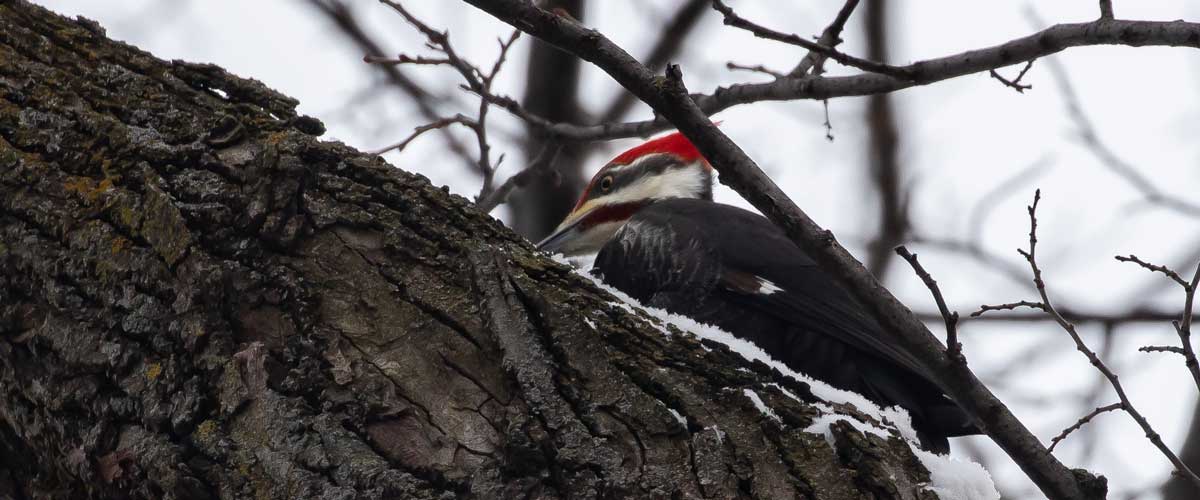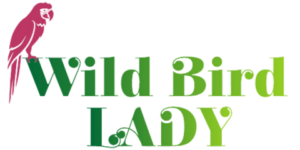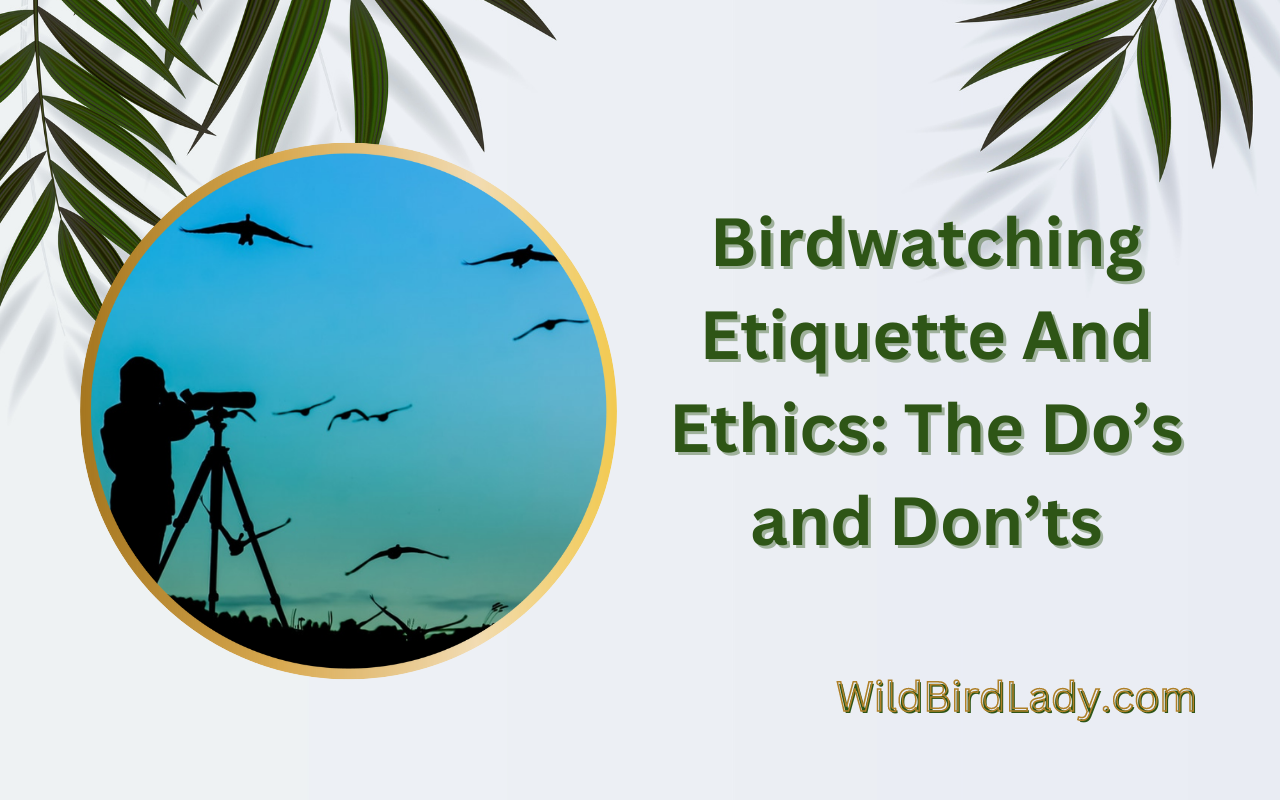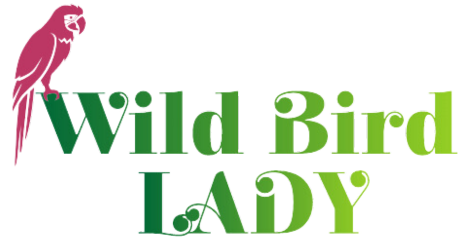The key to birdwatching etiquette and ethics is to respect the birds and their environment while minimizing your impact on them. Birdwatching is a popular hobby among nature enthusiasts worldwide.
It offers an opportunity to connect with nature, observe bird behavior, and appreciate the beauty of our feathered friends. However, as our outdoor recreation activities increase, we must ensure that they do not harm the environment. Birdwatching, being one such activity, requires responsible conduct to protect the safety and welfare of birds and their habitat.
Carelessness, ignorance, and negligence can cause unintended harm to birds. Therefore, it’s essential to follow a set of guidelines that promote bird-friendly behavior and ethical practice. In this article, we will discuss birdwatching etiquette and ethics and how bird watchers can protect the birds they love.

Credit: www.threeriversparks.org
Understanding Birdwatching Etiquette
Birdwatching is an activity that continues to grow in popularity around the world. Not only is it a way to relax, it also provides an opportunity to connect with nature and observe the beauty of the world’s many bird species.
However, it’s important that those who choose to participate in this activity understand the etiquette and ethics related to birdwatching. In this post, we’ll examine some key factors every birdwatcher should consider.
The Importance Of Respect For Birds And Their Habitats
As a birdwatcher, it’s important to remember that birds are not simply objects for our entertainment. They are living creatures that are essential to our ecosystem and should be respected as such. Here are some key points for showing respect for birds and their habitats.
- Always maintain a safe distance from birds and their nests.
- Avoid making loud noises or sudden movements that could startle the birds.
- Do not attempt to touch or handle the birds in any way.
- Respect birds’ natural habitats. Refrain from littering or leaving behind any trash that could harm the environment or cause any harm to the birds’ living spaces.
- Don’t engage in any behavior that could harm the birds’ well-being.
Birds To Watch And The Right Time To Watch Them
If you’re going to participate in birdwatching, it’s important to know which birds to look for and when you’re most likely to spot them. Here are a few key bird species to watch, as well as the best time of year or time of day to observe them.
- Bald eagles (winter months)
- Snow geese (fall/winter months)
- Northern pintail (fall/winter months)
- Red-tailed hawk (year-round, but easiest to spot during the winter months)
- American goldfinch (summer months)
Generally speaking, early morning and late afternoon hours provide the best birdwatching opportunity. Be sure to bring your binoculars or a camera with a zoom lens.
The Impact Of Birdwatching In Conservation Efforts
Birdwatching can play a key role in bird conservation efforts. It allows researchers to track birds and observe behavioral patterns, while also raising awareness about the importance of bird preservation. Here are a few things you can do to make an impact on bird conservation efforts while birdwatching.
- Join birdwatching groups or clubs to participate in bird conservation activities.
- Share your birdwatching experiences with others to generate awareness about bird conservation issues.
- Support conservation organizations such as audubon society and the national wildlife federation that work to protect birds’ habitats and educate the broader public about these issues.
By adhering to birdwatching etiquette and ethics and incorporating bird conservation activities into your birdwatching experiences, you’ll have a memorable and rewarding experience while helping to preserve the natural world around us.
The Do’S Of Birdwatching Etiquette And Ethics
Birdwatching is an exciting activity that requires proper conduct to ensure that you respect birds and their natural habitats. Observing birds can be a fantastic experience, but as a responsible birdwatcher, you need to follow specific guidelines to reduce your impact on the environment.
Below are essential do’s of birdwatching etiquette and ethics that you should keep in mind.
Research And Gather Information On The Birds And Their Habitats
Before heading out to observe birds in their natural habitats, it’s essential to research and gather as much information as possible about birds’ behavior, physical characteristics, and their habitats. This information will enable you to understand how birds interact with their environment and how they behave under different circumstances.
With this knowledge, you will be better prepared to observe them without interfering with their natural behavior.
Respect Bird Habitats And Their Natural Environment
Bird habitats are critical ecosystems that directly impact birds’ survival, and as a birdwatcher, you must respect and protect these habitats. You can do this by staying on the designated trails to avoid trampling on sensitive plants and grasses. You should also avoid littering and damaging the environment by taking out everything you carried in, including waste products and food scraps.
Proper Use Of Birdwatching Equipment
Using appropriate birdwatching equipment such as binoculars, cameras, or telescopes is necessary to have a successful birdwatching experience. However, these tools can cause disturbance to the birds if not used correctly. You should use binoculars or telescopes from a safe distance to observe birds without interfering with their behavior, and cameras should have a silent shutter to avoid startling the birds.
Behavior While Observing Birds Such As Keeping A Safe Distance, Being Quiet, And Avoiding Sudden Movements
While observing birds, it’s essential to maintain a safe distance to avoid disturbing their natural behavior. You should also try to remain quiet and avoid sudden movements or loud noises as they can startle the birds. If you want to get a closer look, it’s advisable to use binoculars or telescopes to observe the birds from a distance.
Proper Disposal Of Waste Products
Proper waste disposal is critical to maintaining a clean environment and avoiding harm to birds. Before starting your birdwatching activity, pack your food and other waste products in a reusable or disposable bag and dispose of them appropriately in the designated bins.
This way, you won’t leave any waste that can harm the birds or other wildlife in the area.
Birdwatching can be a fulfilling and exciting activity, but as a responsible birdwatcher, you should follow these essential guidelines to protect and respect the birds and their natural habitats. By adhering to these guidelines, you’ll have a successful birdwatching experience while also conserving the environment.
The Don’Ts Of Birdwatching Etiquette And Ethics
Birdwatching is an outdoor activity that has been traced back to the 18th century. Watching birds in their natural habitat while following the right ethics and etiquette can be an enjoyable and relaxing experience. It is essential to understand the dos and don’ts of birdwatching etiquette and ethics to avoid disturbing birds’ natural habitats and their behavior.
This section will focus on the don’ts of birdwatching etiquette and ethics.
Avoid Interfering With The Habitat Or Disturbing The Birds
Birds’ natural habitats should be respected, and birders must take care not to interfere with them. Here are a few pointers to keep in mind:
- Do not harm or damage trees, plants, or any other natural elements that birds rely on for food or shelter.
- Do not use any artificial nesting or feeding to attract birds.
- Do not attempt to move or remove any bird that has made its habitat in the area.
Avoid Using Hunting Equipment While Birdwatching
Birdwatchers should not use any hunting tools or equipment that can harm birds or their environment, including:
- Do not carry guns, bullets, or traps.
- Do not use any bird calls that can stress or scare away birds.
- Do not use any bird lures that can cause harm to the birds or their habitats.
Do Not Trespass Or Violate Any Laws
It is important to remember that birdwatchers are visitors in the birds’ natural habitats, and they must follow all the laws and regulations regarding such areas. Here are a few things to keep in mind:
- Do not enter private property without permission or access restricted areas.
- Respect the boundary set by the authorities that protects the bird and their habitats.
- Do not break any laws or regulations related to birdwatching.
Do Not Use Flash Photography While Birdwatching
Birds’ eyes are sensitive, and using flash photography can harm or disorient them, causing them to fly away or stop nesting activities. Here are a few tips:
- Do not use flash photography while birdwatching.
- Use natural light when possible or slow shutter speed.
- Respect the set distance points from the bird and do not interfere with their natural activities.
Do Not Make Any Loud Noises That Can Frighten Or Disturb The Birds
It is essential to keep birds’ stress levels to a minimum, as this can disrupt their natural behavior patterns and interfere with their nesting activities. Here are a few things to keep in mind:
- Avoid loud conversations or any sudden noises while bird watching.
- Do not make loud phone calls or play music out loud while birdwatching.
- Observe birds from a safe distance that does not disturb them.
Following birdwatching etiquette and ethics is essential to protect birds and their natural habitats. Avoid interfering with the natural habitats, using any hunting equipment, trespassing, flash photography, loud noises, or any other activity that can harm birds. Remember, birdwatching is an enjoyable and relaxing activity that can be accomplished while respecting nature and all its elements.
Ethical Considerations In Birdwatching
Birdwatching is an interesting and enjoyable activity. It not only allows us to observe the wonders of nature up close, but it also aids in the conservation of these beautiful creatures. However, undertaking birdwatching without proper knowledge of ethical considerations can have detrimental effects on these birds, especially the endangered ones.
Here are some important ethical considerations to keep in mind when birdwatching:
Taking Action Against Bird Trafficking
Bird trafficking, or the illegal trade of birds, is a major threat to the bird population. As enthusiasts, we can raise awareness about bird trafficking and take action against it by:
- Refusing to buy birds or bird products that have been illegally trafficked.
- Keeping an eye out for suspicious behavior and reporting any illegal activities related to bird trafficking.
- Supporting organizations that fight against bird trafficking.
Avoiding Bird Harassment
Bird harassment can cause stress, disrupt natural bird behavior and can even lead to death. It is important to respect birds and observe them whilst keeping a safe distance. Here’s how you can avoid bird harassment:
- Keep a safe distance while observing birds in their natural habitat. Maintaining a distance of at least 6 feet is usually recommended.
- Avoid disturbing birds during their breeding season, when they are nesting or feeding their young.
- Do not feed or lure birds with food, as this can change their natural behavior patterns and may cause other problems.
Supporting Bird Conservation And Preservation Efforts
Birdwatchers love birds and want them to thrive. Supporting bird conservation and preservation efforts can help to ensure the survival of these amazing creatures. Here are some ways to support conservation and preservation efforts:
- Join local birdwatching and bird conservation organizations.
- Volunteering in bird surveys and in any other conservation activities.
- Participating in bird counts, birdwatching tours and bird tagging programs.
Endangered Species Protection And Monitoring
Endangered birds are at a higher risk of extinction than any other species. Protecting and monitoring the numbers and activities of such birds is crucial to their survival. Keep these points in mind:
- Learn about endangered bird species in the area and participate in protecting them.
- Report any sighting of threatened or endangered bird species and consider working with local conservationists to protect them.
- Participate in conservation efforts to monitor the birds’ environment, diet, and behavior to better understand how to aid in their conservation.
It is important to keep in mind these ethical considerations when pursuing the hobby of birdwatching. By respecting birds and their fragile environment, we can all play a role in conserving these fascinating creatures for generations to come.
Frequently Asked Questions Of Birdwatching Etiquette And Ethics
What Is Birdwatching Etiquette?
Birdwatching etiquette involves practices that promote the welfare of birds and their habitats. It involves respecting other birdwatchers, staying on designated trails, not disturbing nesting birds, and reducing noise and disturbance to the environment.
Why Is Birdwatching Ethics Important?
Birdwatching ethics are important to prevent bird disturbance, preserve bird habitats, and protect vulnerable bird species. They help in maintaining a healthy, natural environment for the birds and other wildlife.
How Can I Be Ethical While Birdwatching?
To be ethical while birdwatching, you should respect bird habitats, stay on designated trails, obey birding rules and regulations, avoid bird disturbance and not photograph birds that are nesting or feeding their young.
Can I Use Electronic Devices To Attract Birds?
Using electronic devices to attract birds is generally not recommended as it can disturb birds and disrupt their natural behavior. In some cases, using electronic devices may also be illegal under birding regulations.
What Should I Do If I Find An Injured Bird During Birdwatching?
If you find an injured bird during birdwatching, avoid handling it if possible. Contact a licensed wildlife rehabilitator, local rescue organization or bird expert for help and guidance on how to handle the situation and provide care for the bird.
Conclusion
Birdwatching is an elating activity that lets you relax and connect with nature. However, it’s essential to enjoy it while following the necessary etiquette, respecting the habitats, and taking responsibility for our actions. In this blog post, we have discussed some of the essential birdwatching etiquettes to keep in mind, such as maintaining a safe distance, avoiding disturbing the natural habitat, and following ethical photography practices.
These guidelines, if followed, will not only protect birds and their habitats but also ensure that future generations can enjoy them too. So, whether you are a seasoned birding enthusiast or a beginner, it’s essential to embrace the principles of responsible birdwatching.
Let us all do our part, respect nature and birds, and continue to enjoy the beautiful world of birdwatching!



